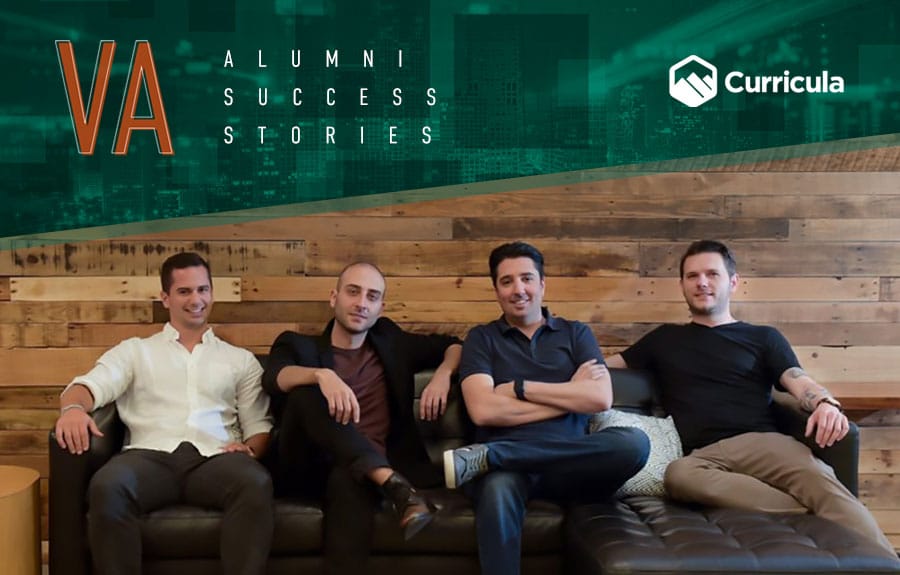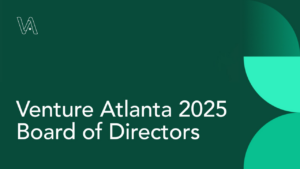Even though it’s only February, saying Nick Santora has been “busy” just might be the understatement of the year.
But the Curricula CEO is, at least, the good kind of busy. Thanks in part to connections made at Venture Atlanta this past year, the story-based security awareness training platform closed a cool $3M round with RCP Equity. Now, he’s got the kind of problems that business owners dream of: lots to get started on with little time to do it.
Santora is no stranger to hard work, though. Before Curricula, the entrepreneur worked as a cybersecurity advisor — a job that ultimately sparked the idea for the company. To uncover more about this founder’s journey and his quest to make cybersecurity training “anything but boring,” we did a little hacking of our own (with permission, of course) into the mind of Nick Santora.
How did you get started? Did you have that quintessential “a-ha” moment?
“I would fly around all over the continent, teaching technical teams and executives how hackers are going to blackout the power grid on their watch. Walking through this exercise countless times, I realized that, after millions were spent each year on cyber security, none of it was being focused on teaching their own employees on how to defend themselves. So I thought, why don’t we just make something that’s really fun and memorable for those employees? To make it more digestible for them to be leading the charge here?”
From there, the concept for Curricula became clear: Make it fun, easy, engaging, and memorable for employees to protect themselves from online threats by showcasing short stories that help people visualize a cyber attack. Building content was a large part of this initiative, and developing software to deliver that content certainly wasn’t an easy task.
After seeing that the audience wasn’t connecting with the content, how did you decide to change it? What did that process look like?
“So when you look at the current state of training, it’s essentially “death by PowerPoints,” with slides written by lawyers and monitored by HR. It’s a miserable experience for employees. What we looked at was how we could change that experience to something more relatable. We landed on story-telling — it’s how we’ve communicated all throughout history, and it’s part of our culture and our lives. So what we designed was a series of heroes, villains, and stories that live in the Curricula platform and are delivered to employees. We even built an integrated phishing simulator so companies can simulate a real-world phishing attack in just a couple of clicks. This entire experience allows employees to understand a breach, learn from it, and practice how to defend themselves from the real hackers.”
“Our creative team and I discussed how to bring this idea of security to life for every employee. Our main AI hacker, DeeDee, is a 5-year old villain that employees get to know very quickly. In our software, you can simulate a phishing attack towards your employees, and when they fall for the simulated phishing test, it’s DeeDee on the other end to train them. This way, you’re fully immersed in the stories to defend yourself and it brings the entire experience to life. Employees have a lot of fun talking about different ways they spot DeeDee.”
Ok, so you’re at the forefront of building your business, and everything is working out, people are buying your product, and things are catching on. At what point did pitching at Venture Atlanta become something on your radar?
“We had quite a few people reach out to us, saying we needed to apply. Actually, we applied the year prior, but chose to speak [at a conference in] Vegas instead. This past year, we found out we got in, and we just ran with it.”
“We knew about Venture Atlanta, but the process was a little unusual for us because we weren’t in the fundraising game. We weren’t flying around chasing venture capitalists — they were coming to us. We thought that was pretty cool, and in that process, it gave us the motivation to prepare ourselves.”
What advice would you give to other entrepreneurs who are just starting?
“I think we’re very different than a lot of entrepreneurs and I’m very anti-venture capital. I’ve been focusing on growing a real business with my team and believing that the money will come. I’m lucky enough to have met a group that followed that same mindset. The majority of VCs we met didn’t fit that vibe. “
“At Venture Atlanta, no one knew who we were. It’s because we never played the VC game. We were just here working hard and growing a real business; I would encourage people to follow that same model. If you’re really resourceful about it, you can do a lot with a little. Continue to find real problems and search to solve those problems. Don’t waste your time on crappy pitch decks. If you find a problem and you solve it, the money and everything else will come too.”
Interested in learning more about Curricula? Check out their company page on Venture Atlanta, or visit their website, getcurricula.com.


